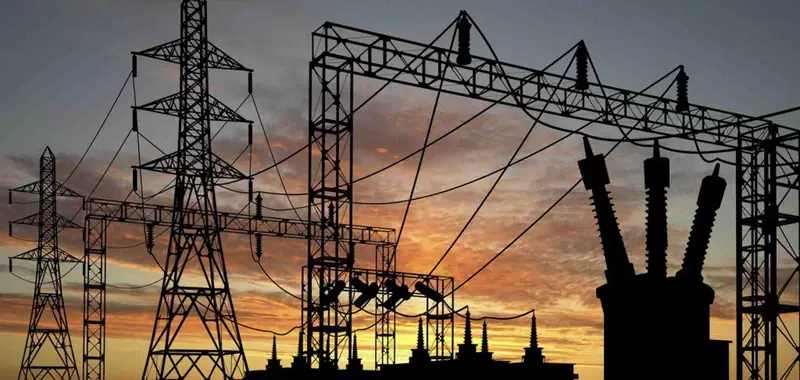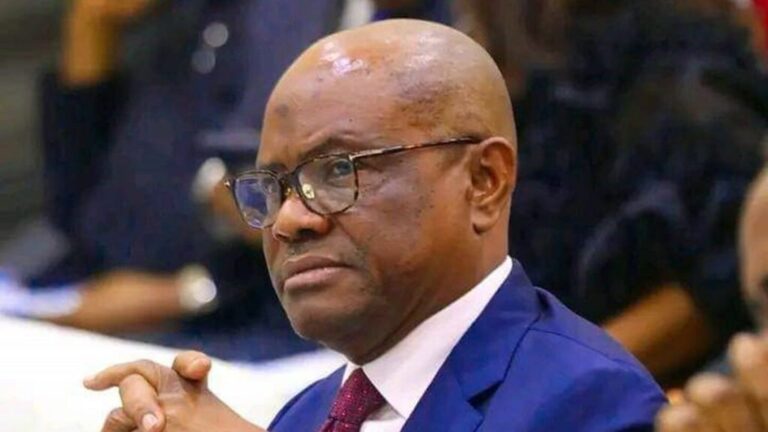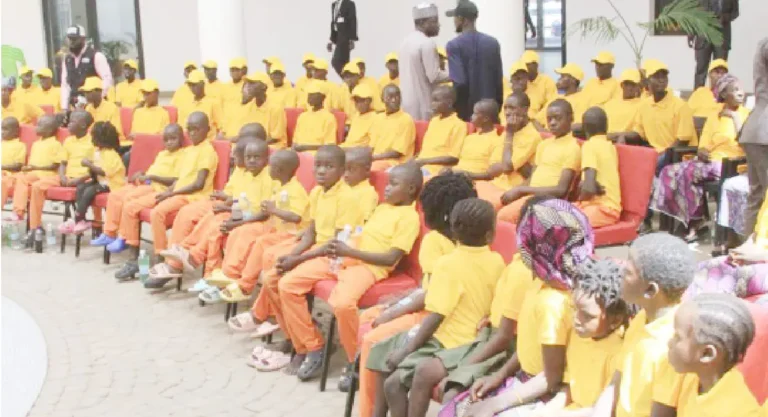
Despite nearly N1.5/ trillion pumped into several electricity metering programmes by the Federal Government and multilateral partners, Nigeria’s huge metering gap persists due to flawed execution, weak regulation, profiteering by electricity distribution companies and cost burdens on consumers, investigation by Vanguard has shown.
Latest report from the Nigerian Electricity Regulatory Commission, NERC, shows that as of December 31, 2024, only about 46.57 percent (6.288 million) customers have meters, out of the 13.503 million registered electricity customers across the 12 electricity Distribution Companies (DisCos) in the country.
The data means that about 7.215 million or 53.57 percent of the customers have been left to face outrageous estimated billing system preferred by the DisCos.
National Mass Metering Programme
Vanguard’s findings show that the National Mass Metering Programme (NMMP), started in 2020, was established with a seed fund of N200 billion from the Central Bank of Nigeria (CBN). The NMMP Phase 0 (pilot phase) was expected to provide one million meters at the cost of N59.28 billion.
The programme, however, ran into trouble in 2022, when the Meter Asset Provider beneficiaries, mainly meter manufacturing companies, failed to deliver the meters.
As a result, the CBN approached a High Court in Lokoja to freeze 157 bank accounts operated by 10 companies involved in the programme. The apex bank accused the meter manufacturers of diverting the money into other uses.
Speaking to Vanguard in confidence, an industry player said the NMMP failed largely at that point due to corruption and lack of transparency on the part of the companies involved and government officials supervising the programme.
The player, who didn’t wish to be named, insisted that the bulk of the meters were not supplied,despite significant pressure from the CBN on the companies involved.
“Most were not supplied because of the connivance between the companies which diverted most of the money and supervising government officials in the last administration”, the source added.
However, a recent document prepared by the CBN for a subcommittee of the House of Representatives investigating NMMP sighted by Vanguard showed that as of April, 2025, N55.42 billion had been disbursed to Meter Asset Provider beneficiaries, representing 93.49 percent of N59.28 billion for the procurement and installation of 976,968 meters. The document showed that so far, as of April 2025, 933,394 meters had been installed out of 976,968 meters delivered.
With the benefiting DisCos expected to repay the loan at 9% interest, the CBN report disclosed that a total of N14.87 billion and N12.50 billion have been received as total interest payments and total principal repayment respectively from inception to date.
to bill consumers for electricity they had not supplied, adding that the DisCos were still making profits by providing estimated billings to consumers.
“Every month,the DisCos bring the same bill and at times increase the amount, ignoring the fact that supply has not improved. In this area (Mpape area of Abuja), there has been no supply now for more than four days but the bill at the end of the month will remain the same. So, whether there is service or not, the consumers are made to pay the bills. If you do not pay, you are punished with disconnection”, he stated.
Okorie added: “Even when they say there is a grid collapse, the consumer without metering is made to pay as if he had power every day. It’s unfair to consumers. It’s unjust.
“The question now is, who are the people implementing the privatization policy of the power sector? You look at the Ministry of Power, that is the policy arm of the federal government. Who is handling consumer affairs in the ministry?
He lamented that the huge amount of money spent by the government on metering programmes ought to make meter installation free for consumers but “sadly, consumers continue to pay for the equipment used by the DisCos to collect money for themselves”.
He said the metering programmes have failed due to the insincerity of those managing the sector, conniving with the DisCos to rip off consumers.
Why government interventions have failed —Experts
Speaking to Vanguard on why there has been no major progress in metering, Executive Director, PowerUp Nigeria, Adetayo Adegbemle, an electricity consumers advocacy group, said government interventions and public funding involved in the various mass metering schemes were at the heart of the problem.
Adegbemle noted that most of the free meters promised in the various programmes never got to the consumers, stressing that there were no verifiable targets or milestones set for the several programmes.
“One of the biggest challenges is governmet’s intervention and I have always posited that as long as we have government intervening we will never see the end of the problem.
“I will give an example with the PMI. Have you seen the policy document on the PMI? If it is hidden, how do they measure the progress and keep track of the number of meters they said it will deliver?
“For instance, they said the PMI will deliver 70,000 meters by April and 200,000 by May. As we speak,nobody has sighted a single meter. This is June and no information. How are these enforceable? So, you know from the beginning that PMI has issues”.
On National Mass Metering Programme Phase 0, he said: “One of the feedbacks we got is that many of the meters that were claimed to have been installed were never installed.
“We have fake data from the DisCos claiming these numbers that never exist. Due to this, the CBN went ahead to freeze about 140 bank accounts of companies involved in the supply of the meters. They went to court in Lokoja ,only for them to wake up one morning and unfreeze those accounts. As we speak now, nobody knows the outcome of that investigation”.
Also speaking on the issue, electricity market expert, Lanre Elatuyi, questioned the role of the government in meter provision.
Elatuyi stated that having privatised the sector , it was wrong for the government to continuously pump money into the sector ,given its own inefficiencies and corruption in the system.
Progress has been made —Minister
The Minister of Power, Chief Adebayo Adelabu, has, however, defended the government’s effort aimed at bridging the metering gap, noting that progress had been made in the past year.
A mail to Vanguard by the Minister’s Special Adviser, Strategic Communications and Media Relations, Bolaji Tunji, stated that while the government acknowledged the existing metering gap, it was actively working to close it as quickly as possible.
He stated: ‘‘The fact remains that a sizable portion of active electricity users already have meters, countering the exaggerated portrayal of an industry in crisis.
“Taking a long term perspective, installation rates have varied over the years, the sector maintains a yearly average of about 668,000 meters installed.
‘‘Additionally, structured financing and government-backed initiatives are expected to accelerate deployment beyond the current pace, ensuring that the metering gap is addressed efficiently.”
“To bridge this gap, the government has put in place key initiatives aimed at significantly improving metering across the country. ‘‘The Distribution Sector Recovery Program (DISREP) is set to deliver 3,205,101 meters by 2026. This will be achieved through different procurement models, including 1,437,501 meters through International Competitive Bid 1 (ICB1), 217,600 meters through National Competitive Bid (NCB), and 1,550,000 meters through International Competitive Bid 2 (ICB2). As part of this plan, the first batch of 75,000 meters under ICB1 was delivered by April 2025, followed by the second batch of 200,000 meters in May 2025.
“In addition to the DISREP, the N700 billion Presidential Metering Initiative (PMI) is another key intervention designed to accelerate metering. The initiative, which has already secured N700 billion from the Federation Account Allocation Committee (FAAC), is structured to ensure large-scale meter procurement and deployment. A Special Purpose Vehicle (SPV) has been established to oversee the implementation of the initiative.
How NERC protects customers
Speaking on how NERC protects consumers from the excesses of DisCos, Adamu Ibrahim, a Principal Manager at the Commission, said the monthly energy capping order issued by NERC ensures that DisCos do not over bill customers.
According to him, “the principle behind the capping of estimated billing methodology is that the consumption pattern of all metered customers in a particular feeder should mirror the pattern of all unmetered customers.
“The cap is actually a ceiling which the DisCos are not allowed to bill customers above. So, on a monthly basis, the Commission computes these averages and issues them to the DisCos. Those caps are also published on the Commission’s website”.
He encouraged customers to check their feeders on the Commission’s website to know the cap for their feeders which will help to monitor the bill received from their DisCos.
He assured that any customer that is over billed would get redressed, while DisCos would also be punished.
VANGUARD.




